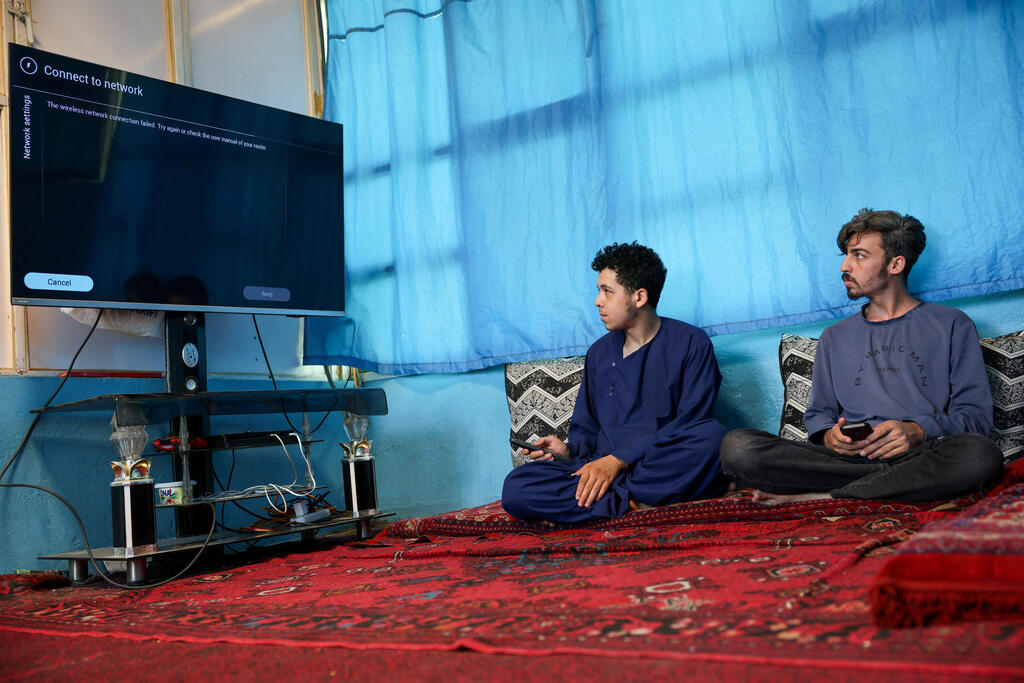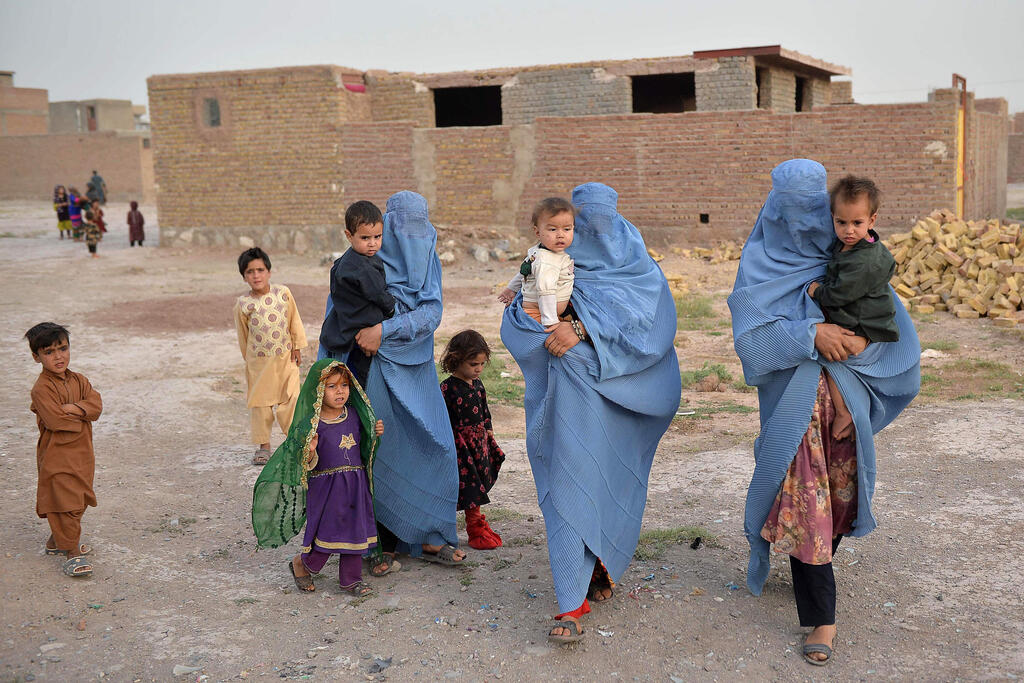‘We are blind’: Afghanistan faces nationwide internet blackout as Taliban blocks online access
Afghanistan experienced a near-total shutdown of internet services Tuesday, along with widespread disruptions to mobile networks, according to local reports.
The Taliban government has not issued an official explanation, but observers say the blackout is likely deliberate and linked to the Islamist group’s declared campaign against what it calls “immoral activities” online — primarily referring to access to pornography.
4 View gallery


Afghans in Kabul try unsuccessfully to watch television
(Photo: REUTERS/Sayed Hassib)
The monitoring group NetBlocks reported a “total internet blackout” in Afghanistan, saying connectivity had been dropping gradually since Monday night and now stood at less than 1% of normal levels in a country where access is already limited. The group said mobile disruptions stem from reliance on the same internet backbone that was cut.
Afghan broadcaster ToloNews warned viewers of possible outages and said the Taliban is allowing only 2G networks to operate, while more advanced 3G and 4G services remain down. Cloudflare Radar, another monitoring service, said the disruption was most severe in Kabul, Herat and Kandahar.
The blackout has sparked panic in a country of 43 million already grappling with a humanitarian crisis deepened since the Taliban retook power in 2021. “We are blind without phones and the internet,” said Najibullah, 42, a Kabul shopkeeper, speaking to AFP. “All our business relies on mobile phones. Deliveries are arranged with phones. It’s like a holiday — everyone is at home, the economy is frozen.”
Afghans abroad also voiced alarm, saying they were unable to reach family members. “Since yesterday, we have had no contact with anyone,” Mohammad Hadi, a 30-year-old Afghan living in India, told CNN. “There’s no way to speak, no way to know if they are safe.”
Earlier this month, Taliban leader Hibatullah Akhundzada ordered limited shutdowns in several provinces. Tuesday’s blackout marked the first nationwide internet cutoff since the group’s return to power. AFP reported that just before the outage, a Taliban official warned its Kabul bureau that between 8,000 and 9,000 communication sites would be taken offline “until further notice.”
The official acknowledged the severe economic consequences, saying banking services would also be affected, but insisted the move was necessary. According to AFP, Akhundzada ignored warnings from his own officials about the potential fallout.
The Taliban previously ruled Afghanistan from 1996 to 2001 before being ousted by a U.S.-led coalition following the Sept. 11 terror attacks, which were carried out by al-Qaida while it had sanctuary in Afghanistan. After two decades of war, foreign troops withdrew in 2021 under a deal signed by U.S. President Donald Trump during his first term, and the Taliban swiftly seized Kabul, toppling the Western-backed government.
Since returning to power, the Taliban has reimposed harsh restrictions, particularly on women. Girls are barred from school beyond age 6, women cannot travel long distances without a male guardian and most jobs are closed to them. Women are permitted to touch only their father, brother, husband or son — and vice versa.
The internet blackout is expected to hit women especially hard. Many had turned to online education as their last chance to study after sweeping bans on in-person schooling. “Our last hope was online education, and now even that dream has been destroyed,” an Afghan student using the pseudonym Fahima Nouri told the BBC.
Sanam Kabiri, a women’s rights activist based outside Afghanistan, condemned the move. “The Taliban are using every possible tool to oppress our people,” she said. “What more do these ignorant men from another century want from our already suffering nation?”


